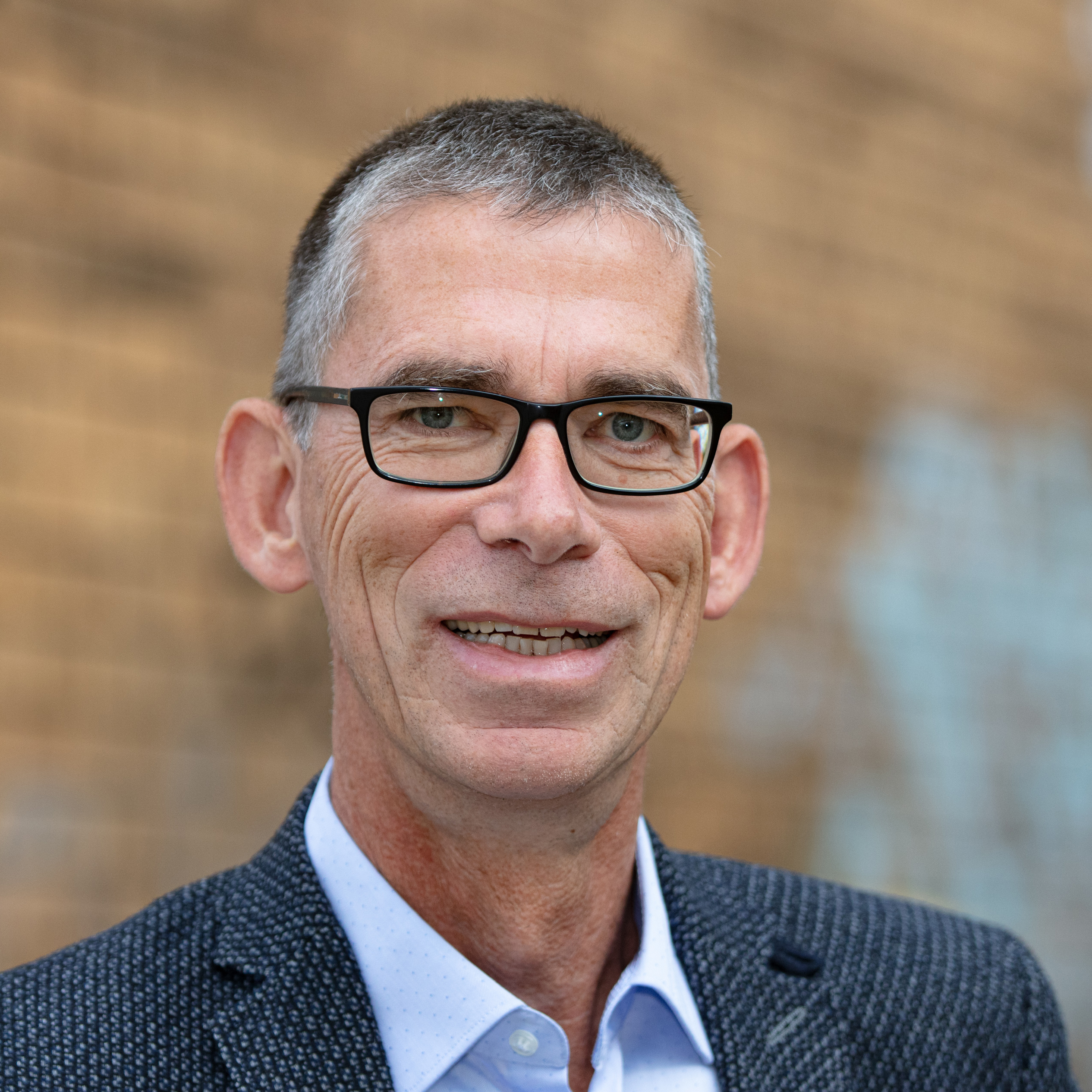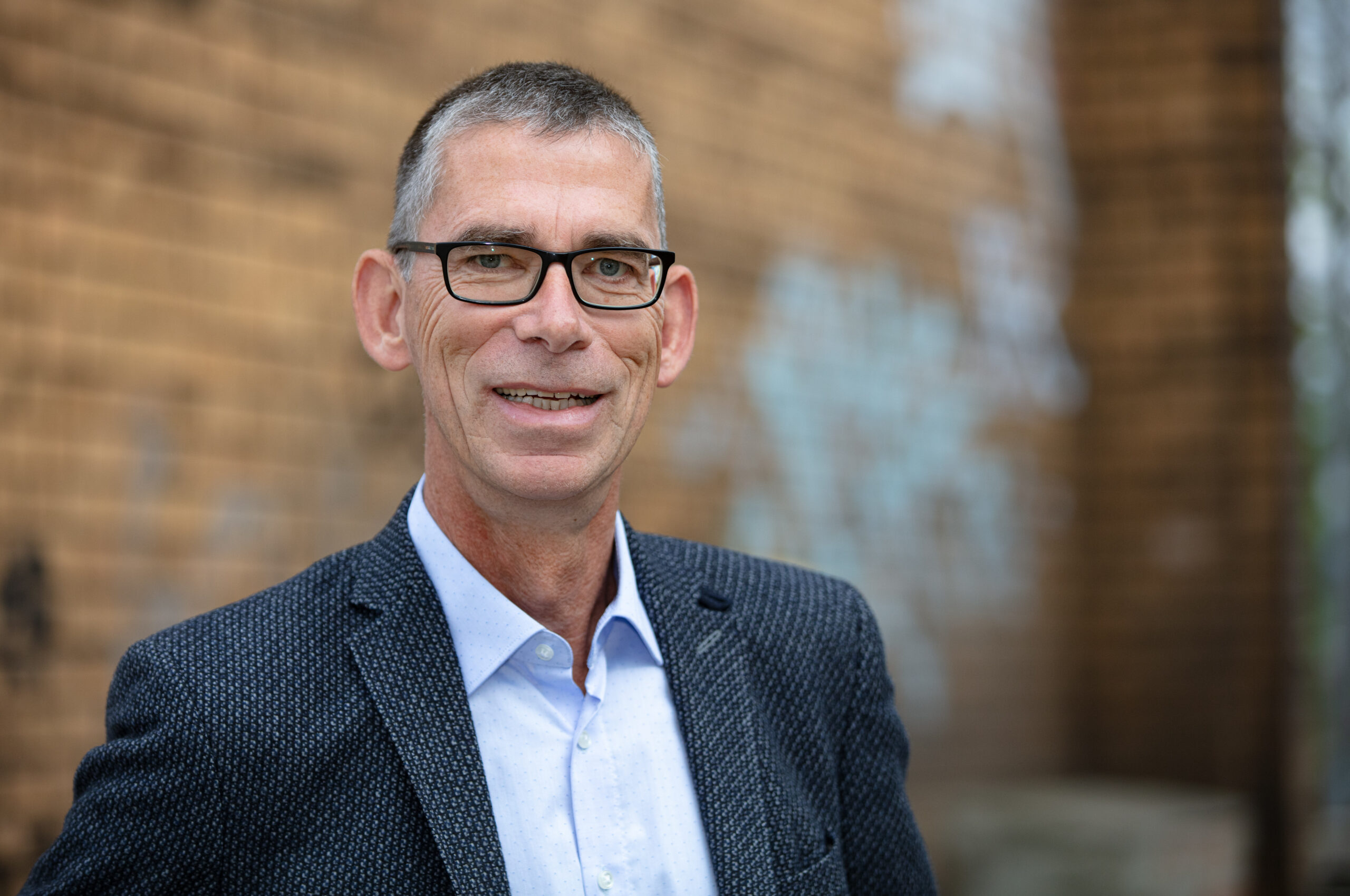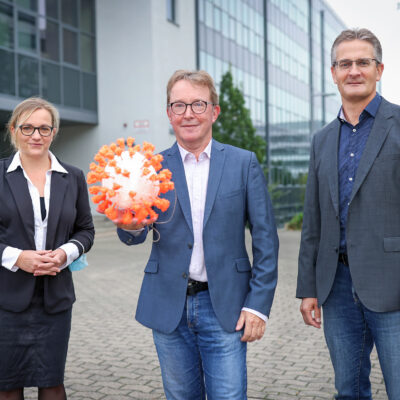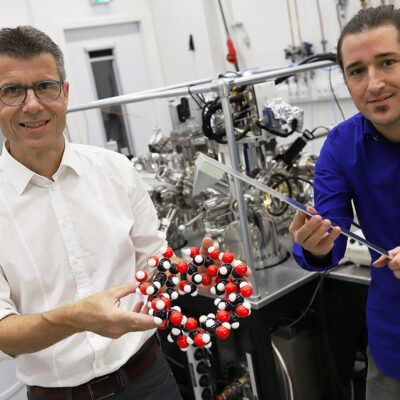‘The widespread lifting of coronavirus protection measures could have unforeseeable consequences,’ says epidemiologist Professor Oliver Razum, MD, of Bielefeld University. In our interview, the public health scientist explains why he is in favour of sticking to the public mask requirement, and why radical solutions are an unsuitable approach to a pandemic.
In early April, coronavirus protections were scaled back sharply nationwide. How appropriate is this from your point of view?
Razum: The Omicron variant is now dominant throughout Europe. And this places us in a critical situation. Because the Omicron variant is so contagious, we are faced with a mismatch between the reduction of measures and the number of cases occurring. Some claim sweepingly that the Omicron variant leads less frequently to severe illness, and they say that the virus should now be allowed to run its course largely uncontrolled. I have several reservations about this claim. First, if everyone had been vaccinated or if everyone had had a coronavirus infection, then severe cases of Omicron would be rare indeed. But unfortunately, only three quarters of the population have been vaccinated, and barely 60 per cent have received a booster dose. Second, we are continually seeing breakdowns in important services—especially in hospitals as well as in public transport—simply because employees are ill. Their illnesses are not life-threatening, but they are ill enough to be unable to work for a week or two. Third, each additional transmission of SARS-CoV-2 increases the risk of a new mutation emerging. In the worst case, this could have more problematic characteristics than Omicron. It could lead to a renewed increase in more severe courses of the disease and to vaccinated people not being well protected or not protected at all. Of course, it is also possible that more harmless variants will emerge and the pandemic will subside—but we don’t know that. And nobody and certainly none of the virologists can predict that for sure. I am concerned about the very far-reaching lifting of protective measures. I think it would be appropriate to keep the mask requirement—a small encroachment on freedom. Requiring a mask in public transport is the absolute minimum. I would have liked to see the mask requirement continue in other public areas such as supermarkets or cinemas.
Vaccination was seen as a great opportunity to end the pandemic. Although vaccination against coronavirus has been carried out in Germany since the end of 2020, many people are still falling ill despite vaccination. Is this a disappointing result?
Razum: Not at all. In retrospect, it was sensational to see how several generally well-tolerated vaccines were developed in such a short time. The fact that these vaccines provide protection for only a short time is not surprising. It is a well-known fact that you get the common cold every two or three years. Colds are caused by viruses, including harmless coronaviruses. In the case of the common cold, the immune system builds up an immune defence when confronted with the virus; but unfortunately, this does not last long. Things are different with measles. There, vaccination or contact with the virus protects for life. In the case of SARS-CoV-2, it was clear early on that vaccinating once or twice is not enough; it has to be done more frequently—possibly every year, just like the vaccination against the flu virus. And just as the flu virus changes from year to year, the coronavirus changes too. Like the flu, future vaccines adapted to the dominant coronavirus variants of the time should help to better combat new mutants of the virus.
The pandemic has been dragging on for more than two years now. There have been repeated discussions over the need for drastic measures to control its development better. What do you think of such solutions?
Razum: Early in the pandemic, there was a phase in which a lot of modelling was done—but also by numerous experts who knew little about the social and medical aspects of a pandemic. They were looking primarily at the numbers; but that’s not enough. And they used these numbers as a basis to call for radical solutions. One radical solution is zero Covid—the attempt to prevent any cases from occurring at all. The opposite solution was to let it burn out—to dispense completely with protective measures. However, radical solutions don’t work in a pandemic, because it is not just a purely statistical phenomenon, it’s a social phenomenon. In China, it could be seen relatively early on that applying a zero-Covid strategy leads to severe negative social repercussions—and we do not want these in a democracy under any circumstances. The proposal to protect only the elderly and at-risk groups doesn’t work in practice either. After all, that would require literally locking away a considerable part of the population. And how are these people to be cared for? For all the detailed criticism of the state measures in Germany, I cannot remember responsible people in the federal and state governments ever seriously discussing such radical solutions.

‘I see that the university administration has avoided and continues to avoid simplistic, radical solutions—and I view that extremely positively.’
If you look specifically at Bielefeld University, how do you rate the rectorate’s decisions on how to deal with the pandemic?
Razum: I see that the university administration has avoided and continues to avoid simple, radical solutions—and I view that extremely positively. I think it was the chancellor of our university who said that dealing with the pandemic is like driving by sight—that is, realising that plans may have to be adapted to a changing situation. That’s true. It’s a situation in which you keep getting new information, have to assess it, and then make a new decision. I think the university administrators have handled this in an almost exemplary manner. They did not issue a new regulation every three days; regulations lasted for weeks or even months. Regulations were also made with social concerns in mind, taking into account that the pandemic is a very stressful situation for many at the university—stressful not only because of the fear of becoming seriously ill, but also because of the feeling of being alone and having little social contact. Thus, they took account of those students and employees who could not work at home, for example because they lacked the technical equipment, or because there were too many people in a confined space; and they made it possible for them to come to the university buildings as long as they took precautionary measures.
Although the federal and state governments have cancelled many protective measures, the rectorate is sticking to mandatory mask wearing indoors for the time being. What do you think of this?
Before the regulation was announced, I spoke to the rector of our university on the phone. He told me that the mask requirement would be maintained. My immediate reaction was: Thank you! I think the mask requirement is absolutely correct, and I’m not happy with the current unclear state regulation. You always have to find a balance in a pandemic. There are no perfect solutions; there are, above all, no ‘cost-free’ solutions—and by that I mean above all the social costs. We have to make it possible for students to study together again onsite without fear or risk. We have to consider that some students and teachers have chronic illnesses, so that an infection can be dangerous for them. And there are also students with relatives for whom an infection would be risky. I feel that wearing masks in closed rooms is a comparatively minor restriction of our freedom. There is a lot of talk about freedom in the context of the pandemic. We live in a society in which not everyone has all freedoms all the time—fortunately. There is no freedom to drive through Bielefeld’s city centre at 100 kilometres per hour, even though some people might enjoy it. And there are good reasons for this rule. Things are similar with the restrictions imposed by having to wear FF2 masks or medical masks. They do not just help protect the person wearing them. They also help reduce the risk of infection for weaker and vulnerable people. This ensures their freedom and quality of life in that they do not have to isolate themselves. Thus, compulsory mask wearing also makes a small contribution towards achieving greater health equity.






